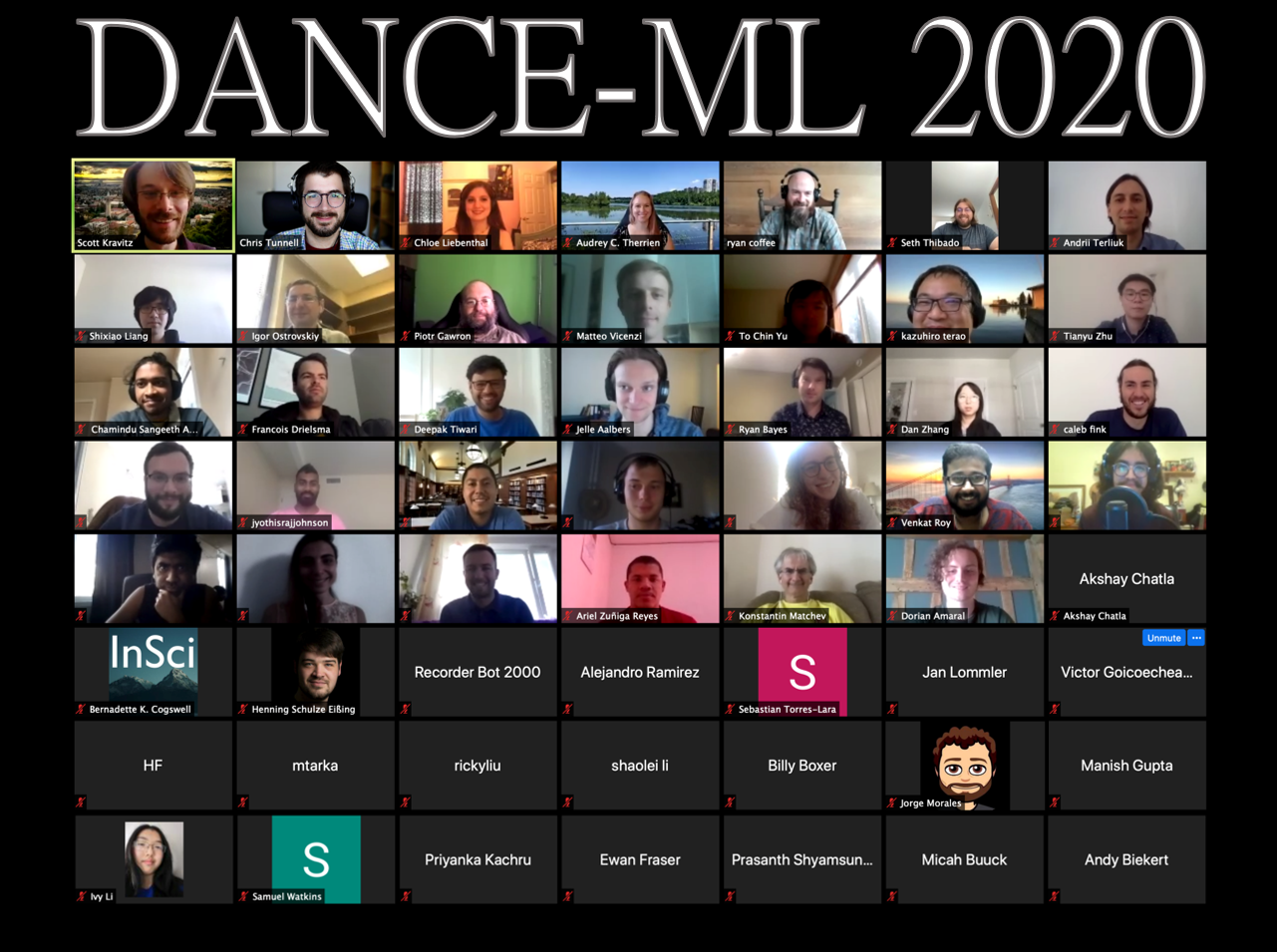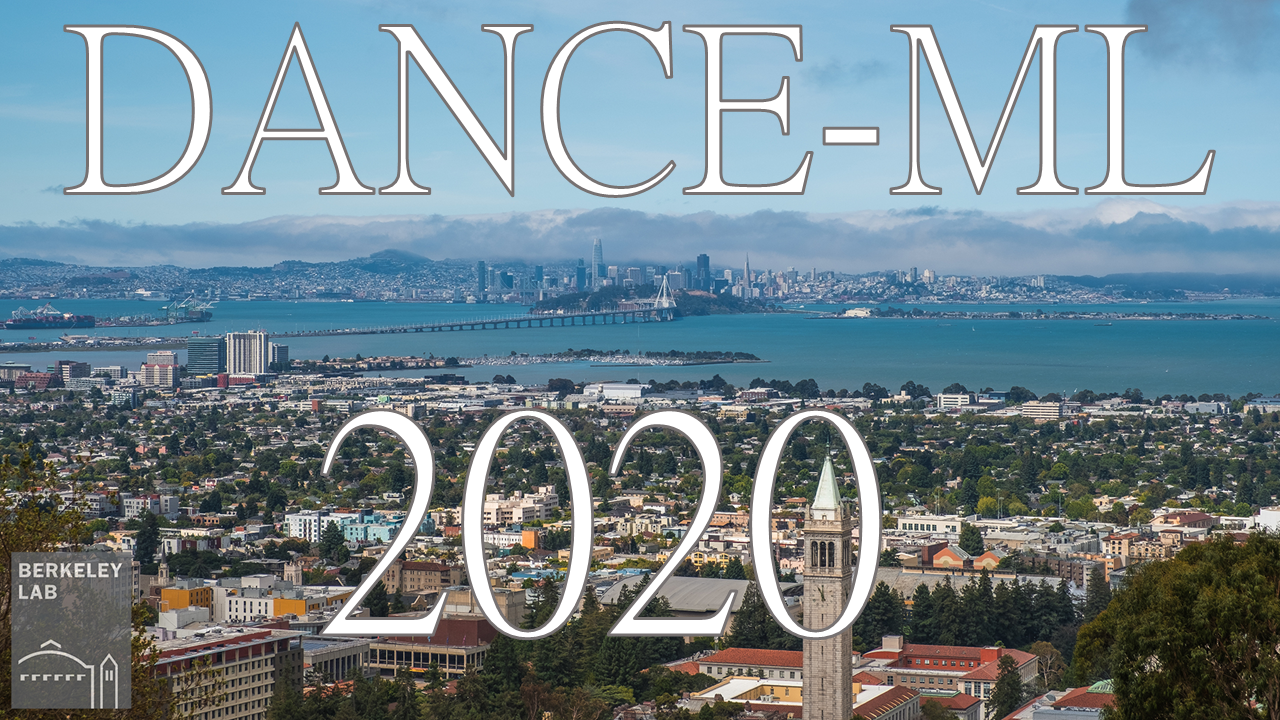Dark-matter and Neutrino Computation Explored (DANCE) Machine Learning Workshop 2020
Slido links:
Recordings can be found in the timetable. In some cases, they are attached to the specific talk, i.e. "detailed" view, in other cases to the session or the "intro" or "review" at the start of the day. Unedited versions are being added first, followed by edited versions when available for the respective session being recorded.
Building on the success of the DANCE computing workshop, DANCE-ML will provide a forum to share and discuss machine learning applications in the context of the dark matter direct detection and neutrino physics community. As these experiments grow in size and complexity, the ability to extract as much useful information as possible from the underlying data becomes crucial. The goal of this workshop is to bridge the gap between broader scientific machine learning clinics and workshops geared toward large accelerator experiments, so that we can better solve the unique challenges of our shared domain. All those interested in machine learning within or adjacent to these areas are encouraged to attend, regardless of position or experience.
Due to the ongoing COVID-19 epidemic, this workshop will be held virtually via Zoom rather than in-person at LBNL as originally planned.
The registration deadline is July 12 now Aug 2. Attendees are encouraged to register as soon as convenient to facilitate session planning. Registration is free, but required for all attendees.
If you would like to share on Twitter, please use #DANCEML.
Program
The first day will be spent on interactive tutorials (one aimed at novice ML practitioners, one more advanced), with each of the four subsequent days centered around a topic identified as a priority at DANCE 2019:
- Unsupervised/semi-supervised learning
- Reconstruction and triggers
- Interpretability and uncertainty estimation
- Simulation and all other topics
Organizing Committee
Scott Kravitz - LBNL
Igor Ostrovskiy - University of Alabama
Kazuhiro Terao - SLAC
Christopher Tunnell - Rice University


